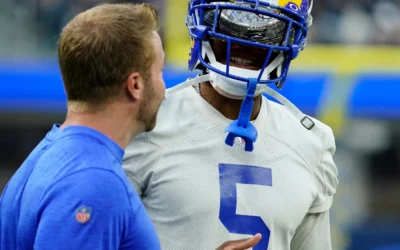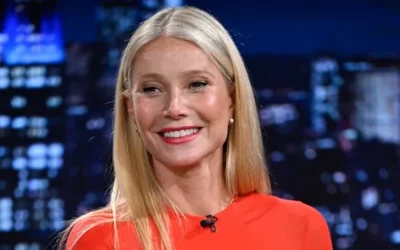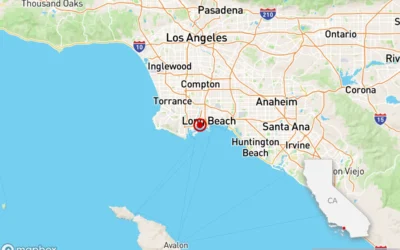Introduction
In an age where social media celebrity status can accelerate overnight, many young stars find themselves grappling not only with newfound fame but also the multitude of challenges that accompany it. One such figure is Olivia Dunne, affectionately known as Livvy, a former gymnast from LSU and a Sports Illustrated cover model. Recently, Livvy shared her distress regarding what she describes as stalking behavior directed towards her at airports, fueling discussions surrounding the darker side of fame.
The Incident
In a heart-wrenching video that made its rounds on social media, Livvy Dunne broke down in tears as she recounted her experiences with obsessive fans, particularly “middle-aged men” who dogged her at airports. Livvy candidly expressed her fears about being stalked, stating, “I don’t know what to do.” These emotions hit hard for many social media users who empathize with the struggles of public figures who find themselves under constant scrutiny and harassment.
The Price of Fame
Livvy’s situation illuminates the long-running debate on the costs of fame that are often overlooked. While social media platforms provide an avenue for influencers to reach larger audiences — propelling their careers and financial opportunities — this also comes with a significant downside. For Livvy, who rose to prominence through her athletic achievements and significant social media following, the invasion of privacy has manifestly begun to outweigh the perks of her celebrity status.
The Double-Edged Sword of Celebrity
The inherent double-edged sword of being a public figure presents complexities that many may not grasp until they experience it themselves. While gaining thousands of adoring fans often serves as validation for one’s hard work and talent, it can also attract obsessive followers. In Livvy’s case, the random encounters at airports, where she should ideally feel safe, have turned into situations filled with anxiety and fear.
The Impact on Mental Health
Studies indicate that celebrities often bear the brunt of mental health issues linked to their fame. The pressure to continuously maintain a likable image while dealing with unwarranted attention can result in severe anxiety and depression. Livvy’s emotional candidness underscores the growing struggle faced by many in her profession, as they balance public expectations with their own personal well-being.
Normalizing the Conversation Around Mental Health
By openly discussing her feelings of fear and anxiety, Livvy Dunne contributes to an essential conversation on mental health, especially among young individuals in high-pressure environments. Her experiences encourage others to speak out and seek help when necessary, challenging the stigma associated with mental health struggles. This level of vulnerability not only humanizes her as a public figure but also fosters a supportive online community that promotes understanding and empathy.
Women in the Public Eye
Livvy’s plight brings to the forefront an often-ignored aspect of the lives of women in the public eye. The conversation surrounding safety, particularly for women, is critical, especially when it involves the fine line between being a fan and becoming invasive or dangerous. Women in sports, entertainment, and social media often face a unique set of challenges that can lead them to feel vulnerable or unsafe as they navigate their careers.
Need for Boundaries
Setting firmly established boundaries should be a universal expectation for anyone in the public eye. Yet, many fans cross these boundaries in the name of fandom, often justifying their behavior by claiming to support or adore public figures. The risk is that, despite fans’ adoration, celebrities like Livvy Dunne may eventually withdraw from their public lives or opt for extensive protections to maintain their safety.
Social Media’s Role
Social media serves as both a platform for connection and a breeding ground for obsessive behavior. The instant access fans have to the daily lives of influencers means that anyone can potentially track these celebrities based on their posts. For Livvy, her openness on platforms like TikTok and Instagram has brought her closer to her fans, but it also can result in unwanted detailing of her location and daily activities.
The Dark Side of Fandom
The excitement surrounding an online influencer can lead to unhealthy obsessions amongst fans, displaying behaviors that blur the lines between admiration and harassment. A recent survey revealed that a shocking number of social media influencers feel unsafe due to overzealous fans. Livvy Dunne’s emotional episode serves as a wake-up call about the need for digital etiquette and a clear understanding of fan-celebrity dynamics.
Call for Change
Following Livvy’s heart-wrenching revelation, many influencers and industry insiders are calling for policy changes concerning privacy and safety in restructuring the framework of social media. Advocates urge platforms to implement stricter guidelines protecting celebrity accounts, particularly in creating systems that can identify and penalize harassing behavior. Raising awareness about the impacts of stalker-like behavior among fans could be vital in curbing unwanted attention and ensuring a safer environment for public figures.
Conclusion
Livvy Dunne’s emotional response to her experiences sheds light on the often overlooked and painful downside of being in the spotlight. The genuine concern over being stalked by fervent fans is a reminder of the complex relationship between a celebrity and their audience. The industry must evolve to ensure that public figures can enjoy their own privacy and safety without being diminished by the very fame that propels their careers. As Livvy has become an advocate for mental health awareness, it is important to champion the importance of boundaries in fandom and keep the conversation surrounding celebrity safety ongoing as the world of social media continues to grow.
The time has come for society to acknowledge the need for empathy toward celebrities like Livvy Dunne, understanding that behind the glamour and allure, there exists a very human fear of safety that deserves attention and action.







